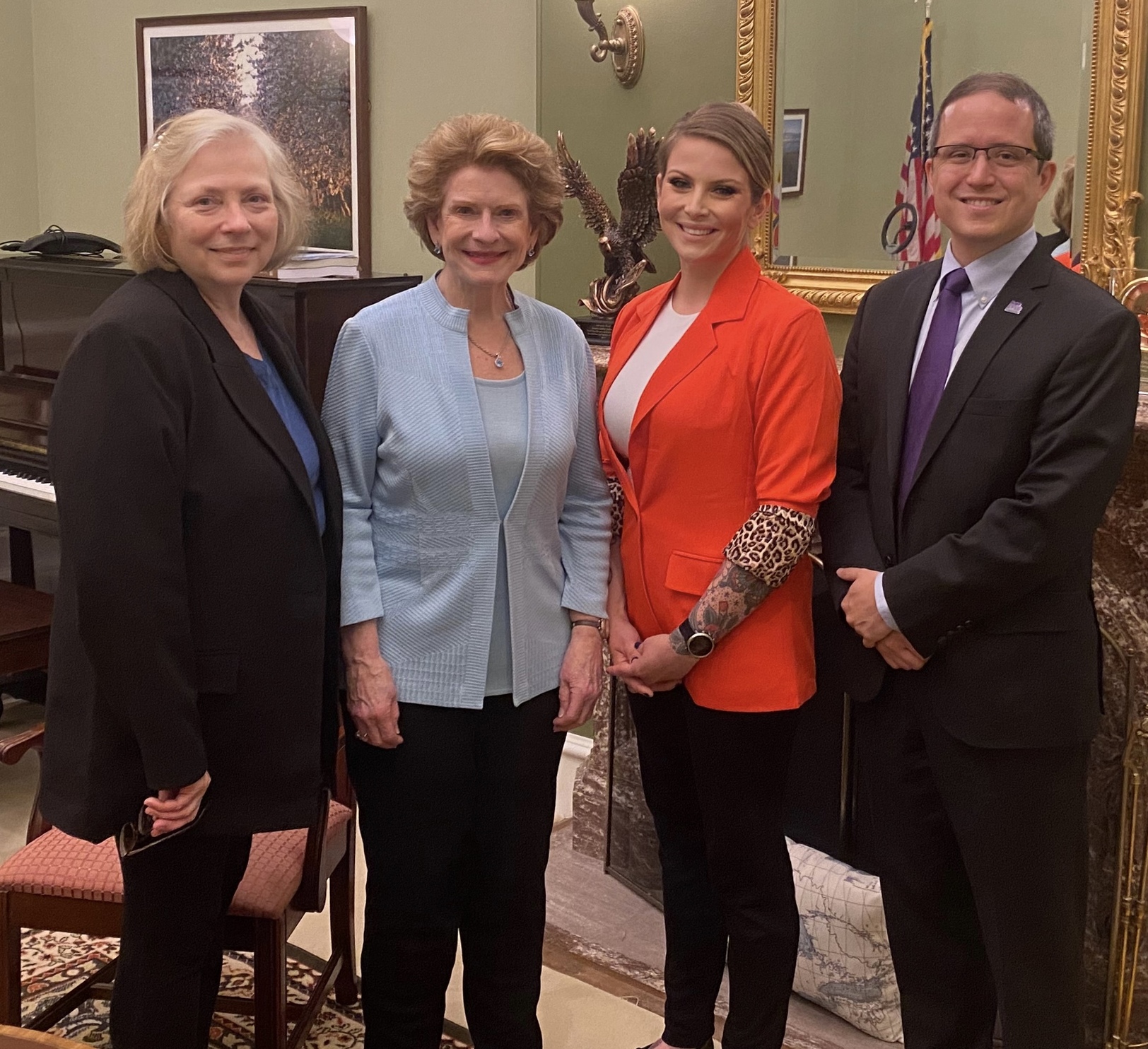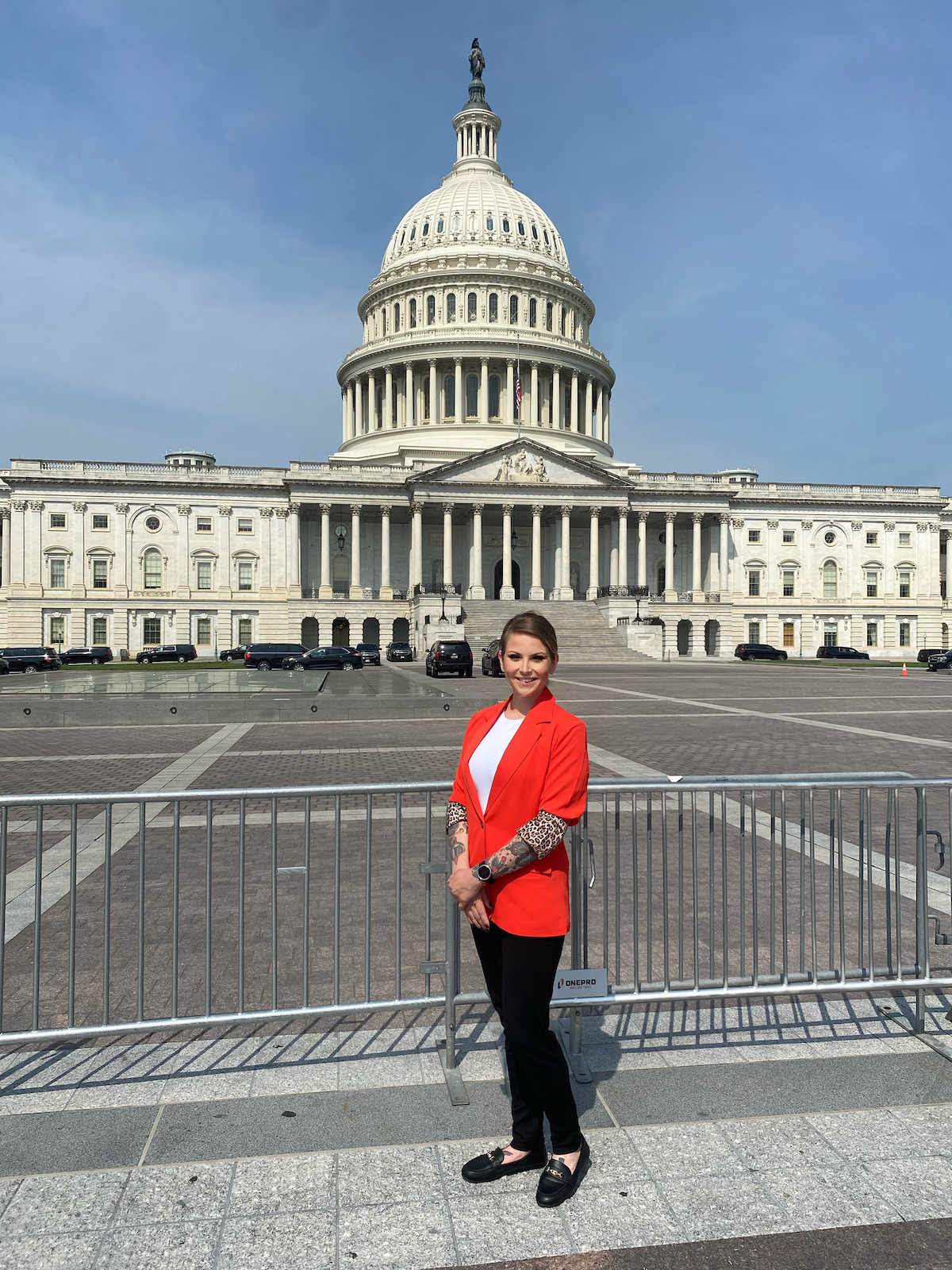Student advocates for stillbirth prevention in Washington D.C.

Nearly 24,000 babies are stillborn in the U.S. each year. And despite advances in modern medicine, the U.S. has one of the poorest track records among comparable nations, with the rate remaining relatively the same over the last 30 years.
A stillbirth is defined as the death of a baby after 20 weeks of pregnancy or during birth. Miscarriage, another form of pregnancy loss, occurs in early pregnancy. Both situations are nightmares thousands of parents experience annually—one that sociology Ph.D. candidate Amber Kelly is unfortunately intimately familiar.
In 2016, Kelly and her husband were expecting their second son. It was a normal pregnancy—Kelly and the baby remained healthy until her due date.
“I went in to see my provider, and I wasn’t feeling well, so I requested to be induced,” she said. “It was my due date—obviously, the baby was ready to come. My provider essentially brushed me off. Told me the baby is going to come when the baby’s ready and feeling discomfort is not enough of a reason for them to induce.”
So she went home. The next day she went into labor and returned to the hospital.
“The nurse kept joking my son and I were going to be so close because we had the same heart rate. After a while of her trying to find a difference in our heart rates, it became apparent something was wrong. She got the doctor who performed an ultrasound, turned the monitor around to me, pointed to the screen where you could see my son, and said ‘that right there is where his heartbeat is supposed to be, and I’m sorry to tell you it’s not beating anymore.’ And that was it. 12 hours later my son Everett was born 8 lbs 1 oz. A perfectly normal-looking, healthy baby who just never took his first breath.”
A post-mortem examination found nothing physically wrong with Everett. A cause of death could not be determined, leaving Kelly and her husband with more questions than answers.
“We are unfortunately among the majority of people who experience stillbirth as it being completely unexplained,” Kelly said, “which also means it was potentially preventable. Had I been induced the day before, there was a possibility my son would have survived and be almost 7 years old today.”
It’s believed that most stillbirths are preventable, she said, but rarely do hospitals have formal policies in place for additional screenings unless the birthing person exhibits a number of red flags throughout the pregnancy, and even then, policies vary by state.
Kelly decided to dedicate her life’s work to changing that in the hopes of preventing other parents from experiencing the same heartbreak she did.
Talking stillbirth prevention in Washington
Kelly reached out to a variety of organizations including the stillbirth prevention organization Healthy Birth Day based out of Iowa. As a result of the partnership, Kelly and 30 other advocates, all parents who lost babies to stillbirth, from across the U.S. met in Washington D.C. last month to speak with policymakers about the Maternal and Child Health and Stillbirth Prevention Act and the SHINE for Autumn Act.
 The Maternal and Child Health and Stillbirth Prevention Act amends Title V to specify stillbirth prevention activities as an allowable use of funds for maternal and child healthcare. While SHINE aims to prevent stillbirths through improved data collection and research.
The Maternal and Child Health and Stillbirth Prevention Act amends Title V to specify stillbirth prevention activities as an allowable use of funds for maternal and child healthcare. While SHINE aims to prevent stillbirths through improved data collection and research.
Currently, many states aren’t required to report stillbirths and post-mortem evaluations vary by hospital, Kelly said, meaning stillbirths are underreported and doctors don’t often know why they occurred.
Babies are twice as likely to be born still to Black, Native Hawaiian or Other Pacific Islander, and American Indian or Alaska Native families than white ones. The risk of severe maternal morbidity is over four times greater following a stillbirth than a live birth, she said. And those who suffer stillbirth can experience adverse mental outcomes such as depression, anxiety, and PTSD for years.
Both bills, which are up for a federal vote later this summer, could change all that.
In D.C., the Healthy Birth Day advocates were able to meet with representatives from nearly every state. Kelly personally met with Sen. Debbie Stabenow to share her story. At the end of the day, Sen. Stabenow signed on as cosponsor of both bills.
“Policymakers obviously have a lot on their plates,” Kelly said. “As advocates and researchers, it’s our role to educate them on the importance of these bills. Stillbirth is something that impacts people for the rest of their lives. If we can prevent it, why wouldn’t we?”